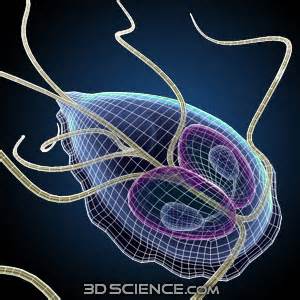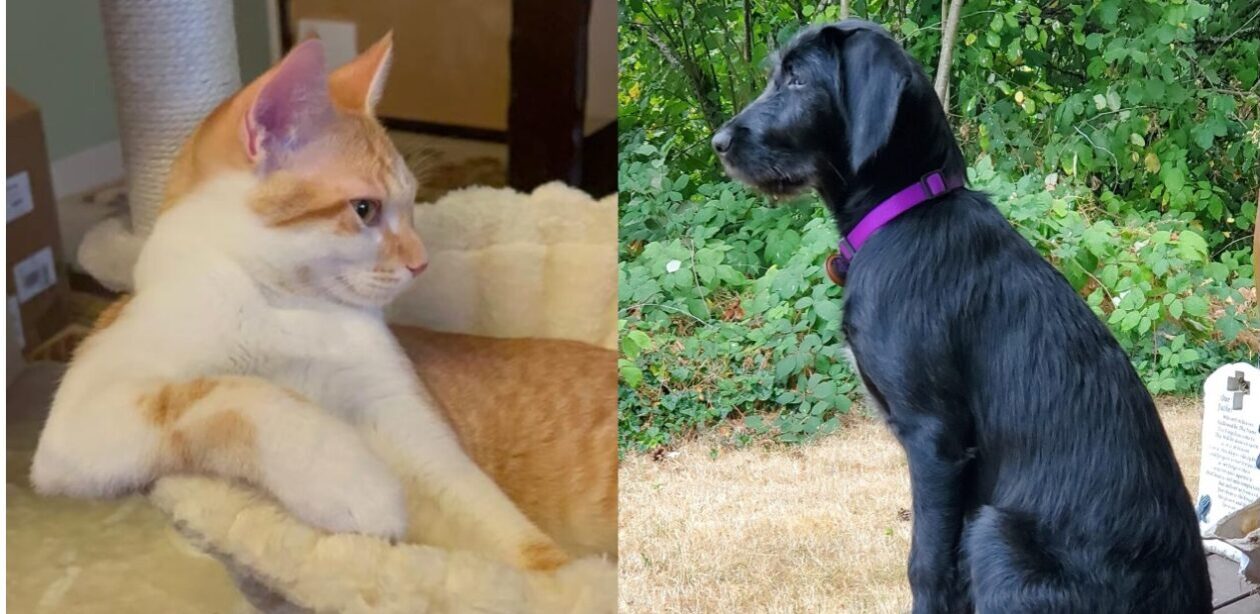Monkey Faced Giardia
By Becky E. Marks, D.V.M.
Recently, the Brown Family went for a hike in the Mountains. What a pleasure to get out of the city for awhile to enjoy nature: fresh air, sunshine and pure stream water. Within 48 hours they all had diarrhea including Dudley their pet dog.

The Browns and Dudley had been infected with Giardia. In the early 70’s and 80’s Giardia had been “the most common infectious disease reported to the health departments”. Currently in Oregon 9.73% of dogs tested are positive for Giardia! It is a protozoa that is found in streams and stagnant water and any moist areas that are contaminated with stools containing Giardia. A common way to acquire Giardia is from a water supply where beavers have defecated upstream. Any warm blooded mammal or bird can be infected.
When animals present to us (dogs more so than cats) they have usually had a profound diarrhea and a decrease in appetite. Often the pet owner can identify when the problem began. However some animals may have a more gradual disease with on and off diarrhea, vomiting, flatulence and weight loss. In this case the owner is not able to pinpoint when the problem started. ( Many people think these symptoms are from feeding cheap food.) Either way the small bowel disease is serious because it can spread to other animals including pet owners. This is by definition a zoonotic disease.
In order to diagnose the problem samples of stool must be examined microscopically or via an enzyme test. The bacterial flora should be examined microscopically, too. Humorously, one form of the tiny protozoa looks like a monkey face under the microscope. There they sit with “big eyes” looking back at you. The treatment may range from antibiotics and a temporary bland diet to hospitalization and fluids. It depends on the severity of the symptoms. The treatment for the protozoa is conventionally a specific antibiotic. However, no treatment is 100% effective. Retreatment or alternative treatments are needed and negative stools to confirm elimination. If an animal carries the Giardia but does not appear sick then he will be a silent carrier and continue to spread the disease. The yard and any areas where stools have been left should be thoroughly cleaned. This may include shutting down the coy pond or cleaning the bird bath because they are stagnant water sources prime for growth of Giardia. Avoid letting you dog drink from puddles.
